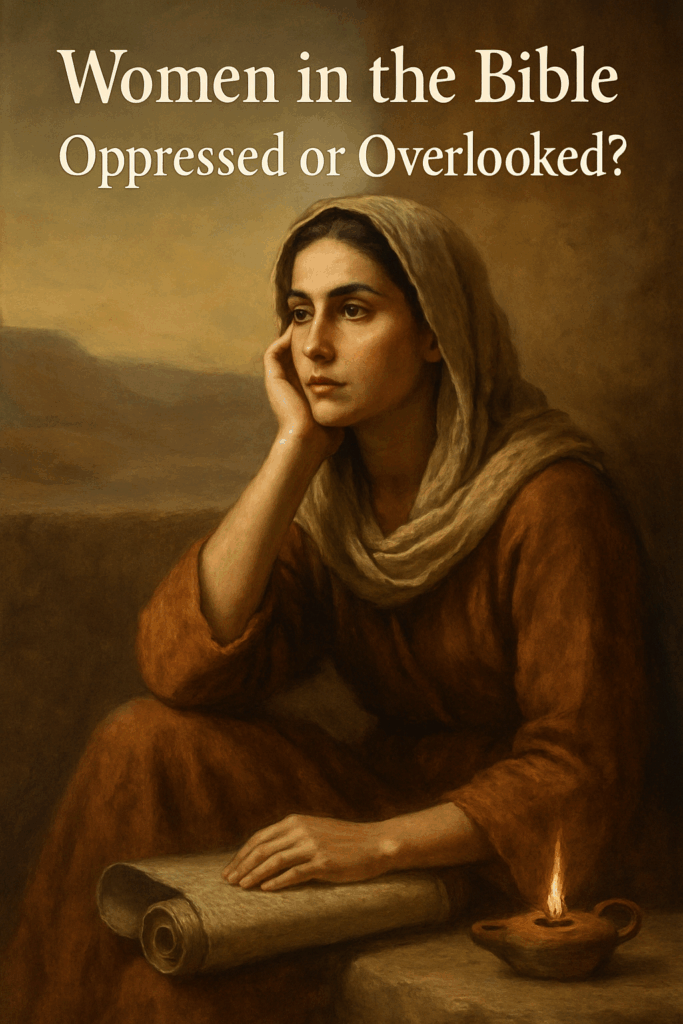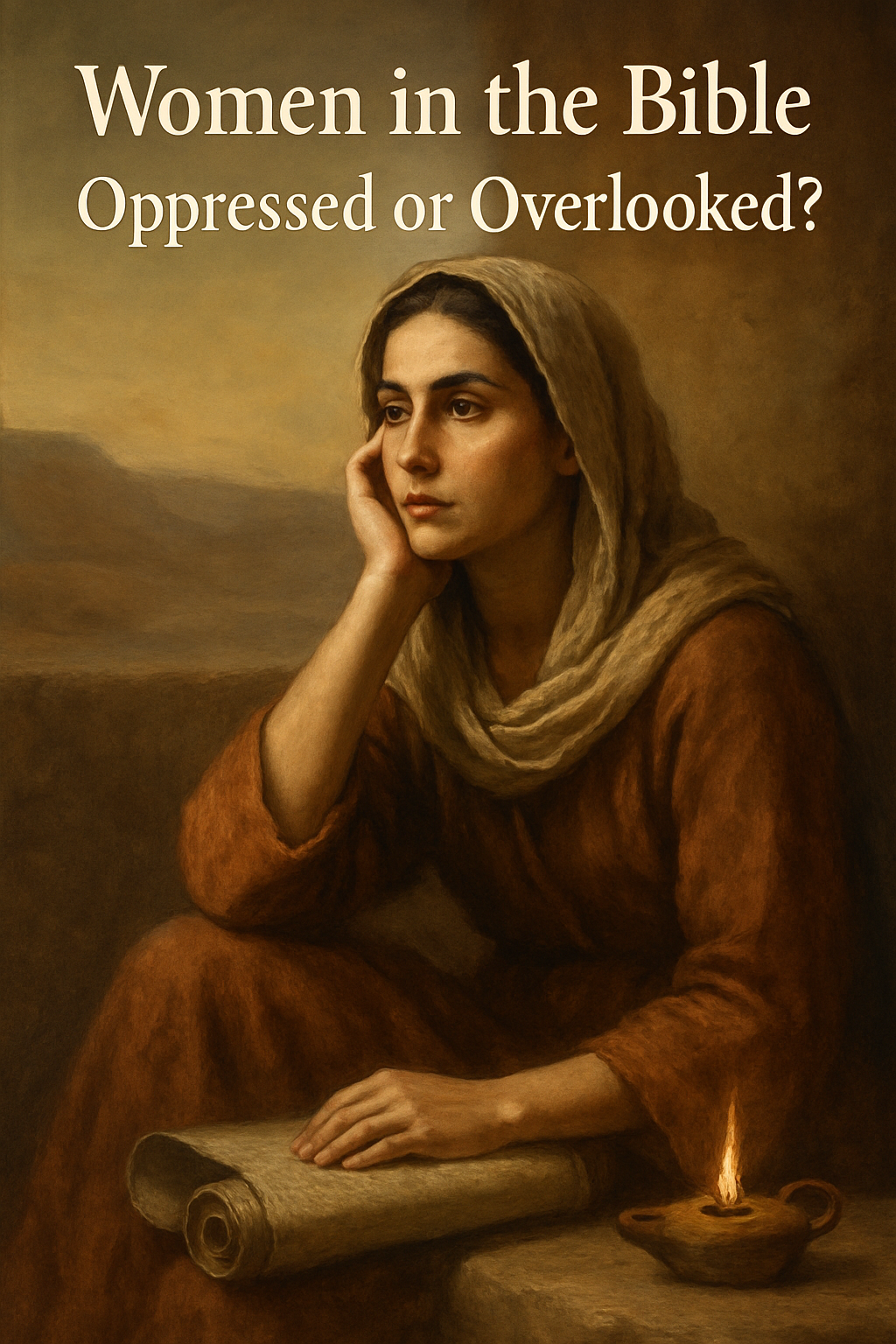We’re often taught that biblical times, especially in the age of the patriarchs, were completely male-dominated. This perception, shaped by medieval and early modern patriarchy, has influenced how we read Scripture. The institutional church greatly contributed to this worldview. However, even in the Middle Ages, women in certain regions had more rights than they did in later periods.
In the time of the patriarchs, women were honored and respected. Their roles differed from those of men, but they were not inferior. Miriam, the sister of Moses, held a prominent role; Deborah, a prophetess and judge, led all of Israel; and even Pharaoh’s daughter plays a key part in the biblical narrative.
If women were truly considered inferior, Sarah wouldn’t have challenged Abraham, nor would Tamar have stood up to Judah. When considering women’s roles in Scripture, we must remember:
- The Bible is about God’s teaching for His people.
- The practices of surrounding nations aren’t relevant to God’s standards.
- We must let Scripture speak for itself, free from cultural bias.
The New Testament speaks clearly about respect toward women:
“Husbands, love your wives, just as Christ loved the church and gave himself up for her.” (Ephesians 5:25)
“He who loves his wife loves himself.” (Ephesians 5:28)
“Husbands, love your wives and do not be harsh with them.” (Colossians 3:19)
These instructions were necessary when new believers from pagan cultures joined the Church—cultures that often devalued women. But in Israel, women already held respected positions, which is why we see so many confident women in the Old Testament, including those listed in Jesus’ genealogy: Tamar, Rahab, Ruth, and Bathsheba – all women with remarkable stories, yet still in line with the Messiah.

🙋♀️ Are Women Allowed to Teach?
A common claim is that women must remain silent in church. This is based on selective readings of Paul’s letters, often taken out of context. Yet the Bible does not impose a universal silence on women. If even one woman is shown to teach, the argument collapses—and the Bible offers many:
- Miriam led worship after the Red Sea crossing.
- Deborah judged and led Israel—a national leader.
- Sarah’s voice was confirmed by God Himself when He told Abraham to send Hagar and Ishmael away.
- Mary Magdalene was the first to announce the resurrection.
- Priscilla taught Apollos the way of Christ.
- Phoebe was a deacon and probably the carrier and explainer of Romans.
- Junia is referred to as outstanding among the apostles.
- Kyria, addressed in 2 John, is likely a house church leader.
Paul’s command in 1 Corinthians addressed a specific, chaotic church setting, likely focusing on married women disrupting the gatherings. Ancient manuscripts show that parts of the passage were later additions. The real problem isn’t the Bible—it’s biased interpretations through history.
What remains is the overall context of Scripture – and that shows that women have had an important voice in religious life from the very beginning. The command to remain silent is not a universal principle, but a measure dictated by circumstances.
👑 Female Leaders and Pillars of the Faith
Scripture honors women like:
- Sarah, Rebekah, Rachel, and Leah – mothers of the twelve tribes.
- Huldah, who confirmed God’s word to King Josiah.
- Abigail, who saved lives with her wisdom.
- Esther, who risked her life for her people.
- Lydia, a merchant and house church host.
- Mary, the mother of Jesus, who spoke deep theological truth.
- Joanna and Susanna, financial supporters of Jesus’ ministry.
These women taught, led, hosted churches, and some were even called apostles. The issue isn’t Scripture—it’s the church tradition that muted women’s voices for centuries. When we read the Bible in full, we see clearly: women were not silenced by God, but empowered by Him.
📜 Final Thoughts
The Bible doesn’t portray women as oppressed—but as honored and respected. It’s church tradition, not Scripture, that introduced systemic marginalization. It’s time we let the Word speak for itself—about both men and women who shaped the story of God’s people.
